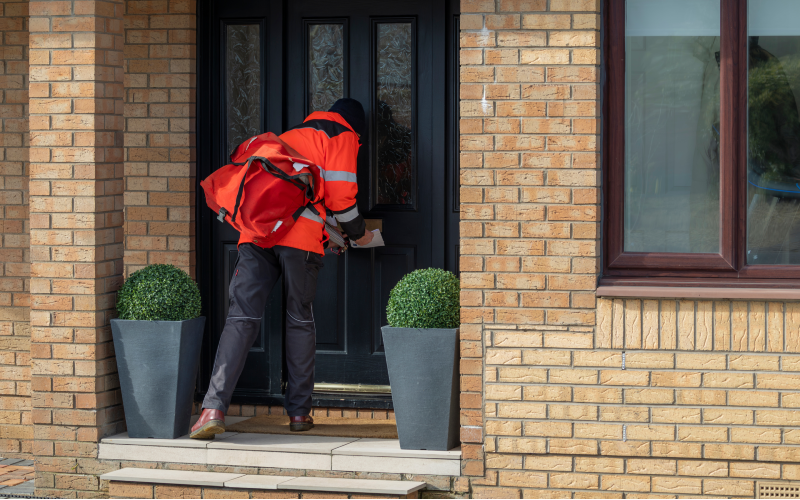
This week, Royal Mail have released troubling figures that show their staff were subject to attacks by dogs 2,197 times in the financial year 2024-25. Whilst there were no Scottish locations within the ‘Top 10’ offender postcodes, dog attacks are still a significant area of concern for all mail carriers or delivery drivers attending at private premises across the country.
The main legislation governing animal attacks in Scotland is the Animals (Scotland) Act 1987 and applies to all members of the public. My colleagues discussed this aspect of the law and claims process in more detail in their blog last year but, when it comes to incidents occurring whilst the injured person is working, they may have a case against not only the dog’s owner or keeper but their employer too.
That said, dogs are not the only risks that present themselves to those in the deliveries business. Delivery companies have a duty of care to their employees to keep them safe at work and during the course of their employment with them. Of course, this is likely a much easier task for those employees who are desk/office based such as in the sorting offices, compared to the mail carriers and delivery drivers who have to visit multiple different locations and properties every day. Because not every property can be risk assessed ahead of time, employers should ensure their employees have sufficient training in recognising any risks to their safety and be aware of any company policies that would help them to protect themselves. This type of risk assessment is called a ‘Dynamic Risk Assessment’.
A dynamic risk assessment involves continually assessing and evaluating your surroundings and the task at hand. It allows you to respond in real time and hopefully react quickly in changing or unpredictable environments. A pre-planned risk assessment can only account for so much and when created may not be able to envisage every scenario that can be faced out on the streets. Your employer should ensure that you are fully trained in carrying out dynamic risk assessments and feel confident in doing so on the spot. This should also be backed up by internal policies that support the employee to act on their findings from their risk assessment. If an employee feels that a property is too risky to enter, whether due to a loose animal or even a giant hole on the doorstep, they should feel able to say no to the delivery and report their decision back to management. They should then be supported by managers to take action in making the location safe or to prevent them from returning to an area of known risk. This may be by asking the home owner to restrain an animal prior to arrival, rectifying any property damage that prohibits physical access or even having the power to stop making deliveries if no changes are made and the property remains unsafe.
However, all too often, we hear of delivery drivers being under pressure to complete a set number of deliveries during their shifts under threats of repercussions should they fail. It is this type of pressure that can often lead drivers to take risks. In addition, the delivery business itself is often seen as a gig economy, whether for parcels or food deliveries, and brings a high turnover of workers. That raises the question of whether many drivers are even receiving basic training on dynamic risk assessment and whether any such training is reasonable in meeting any employer’s duty of care.
We would urge delivery drivers not to take risks with their own safety, request training if they don’t feel confident in approaching a potentially risky situation and ensure that they comply with their employer’s policy for reporting any incidents or near-misses.
If you have suffered an accident at work and sustained personal injury, it is important that you seek legal advice from a specialist personal injury lawyer. Contact a member of our team on 0800 731 8434.
